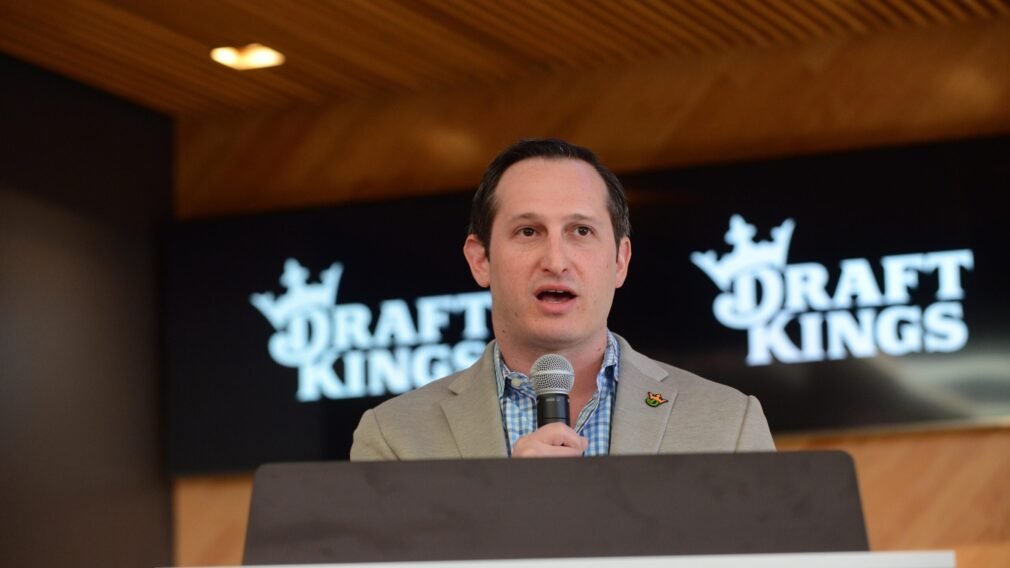DraftKings Also Plans Illinois Tax Response After FanDuel’s Bet Fee
DraftKings is poised to counter Illinois’ new per-bet tax, after FanDuel announced a 50-cent fee per wager, though the company remains tight-lipped on its exact plan.

Illinois’ New Betting Tax Bites
Illinois’ new budget, finalized in late May, introduced a first-of-its-kind per-bet tax: 25 cents on the first 20 million wagers annually per operator, then 50 cents for each additional bet, starting July 1.
This follows a 2024 shift from a flat 15% revenue tax to a progressive 40% rate for top earners. Only DraftKings and FanDuel, handling over 50 million bets each in 2024, crossed the 20 million wager threshold, making them prime targets.
Truist Securities estimates the tax will cost FanDuel $77 million and DraftKings $68 million yearly, roughly 3.5% to 4% of their projected U.S. EBITDA. “This sets a dangerous precedent,” said Robert Walker of ARMS, warning other states may follow.
On June 10, FanDuel, owned by Flutter Entertainment, announced a 50-cent transaction fee on every Illinois wager, effective September 1, just before the NFL season. The fee, tied directly to the state’s new tax, aims to offset costs without eroding margins. “Should Illinois reverse this decision, we’ll remove the fee immediately,” Flutter stated, signaling a push to pressure lawmakers.
CEO Peter Jackson criticized the tax’s impact on recreational bettors, noting it “disproportionately punishes” major operators. The fee, applied to all bets, win or lose, could generate $86 million in 2026 revenue for FanDuel, per Citizens analyst Jordan Bender. Steve Ruddock, an industry expert, called the move “transparent,” showing bettors the tax’s true cost.
DraftKings’ Cautious Response
DraftKings, holding a 35% share of Illinois’ betting market, confirmed it “anticipates taking action” but offered no specifics. “We expect to share more information soon,” a spokesperson told Sports Betting Dime.
Analysts, including Jefferies’ David Katz, predict DraftKings will likely mirror FanDuel’s fee, given the tax’s $68 million annual hit.
Citizens estimates a similar fee could yield $79 million in 2026 revenue, bolstering DraftKings’ EBITDA by 5.4%. The company’s stock rose 2.6% after FanDuel’s announcement, suggesting investors see a competitive edge if DraftKings delays or avoids a fee.
A Familiar Playbook Faltered
This isn’t DraftKings’ first tax dodge attempt. In August 2024, it proposed a “gaming tax surcharge” on winning bets in high-tax states like Illinois, New York, Pennsylvania, and Vermont, aiming for a 20% effective tax rate.
A $10 winning bet at +100 odds would’ve paid $19.68, not $20, a 1.6% cut. Backlash was swift. Customers flooded X, and rivals like FanDuel, ESPN Bet, and BetRivers refused to follow.
DraftKings scrapped the plan within weeks, stating, “We listened to our customers.” The retreat, announced hours after FanDuel’s Q2 2024 earnings call rejecting surcharges.
The Hesitation
DraftKings’ silence shows lessons from 2024’s fiasco. FanDuel’s fee, while bold, risks alienating small-stakes bettors. The Sports Betting Alliance, representing DraftKings and FanDuel, warns the tax could push players to unregulated sites, which offer no consumer protections or state revenue.
“Small bettors get hit hardest,” the Alliance said, noting a $1 bet now carries a 50% fee for FanDuel users. DraftKings, burned by last year’s PR misstep, may now explore alternatives.
Recommended
